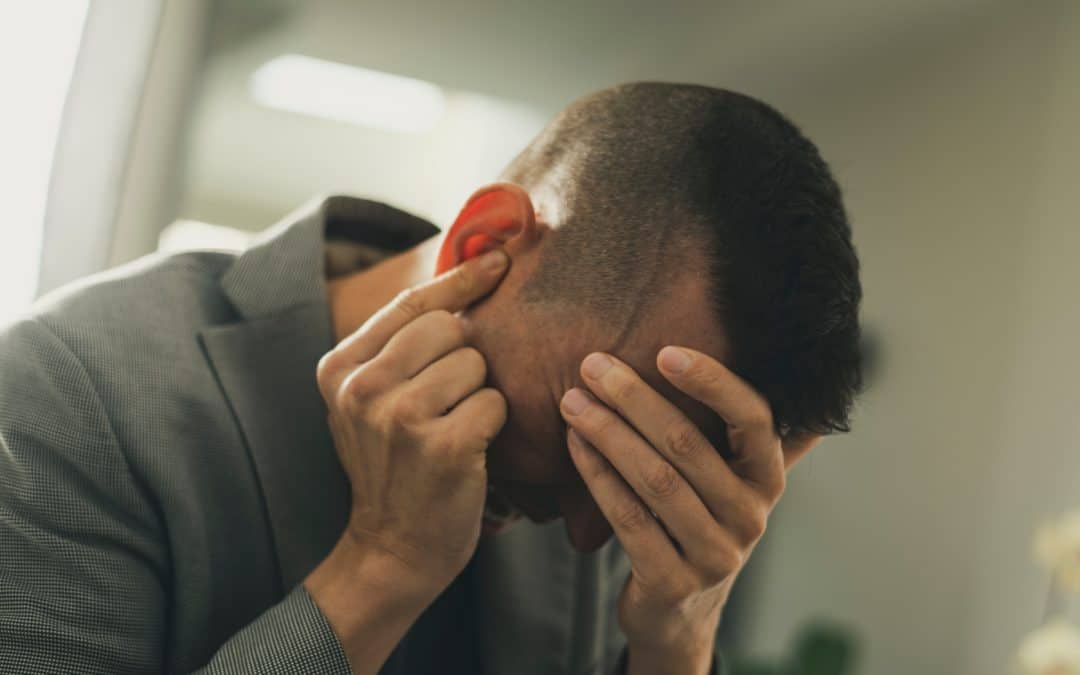As drugs have become more potent over the years, so too have their effects. Some drugs produce dangerous mental health risks. These risks include everything from mild anxiety to full psychotic breakdowns. Psychotic events can be life-threatening, as users pose a danger to themselves and others. Knowing how to react in the event of drug-induced psychosis can mean the difference between losing a life and saving one. It is never too late to find help for drug-induced psychosis and to explore the most effective treatment options.
What is Drug-Induced Psychosis?
Drug-induced psychosis refers to the severely volatile mental state that some drugs can activate in a person. Oftentimes, this is caused by ingesting too much of a particular drug. Some drugs trigger overdose when taken in large quantities. Others, like certain psychedelics, can trigger psychosis. The level of toxicity in certain psychedelics can provoke paranoia, which can lead to a full-blown psychotic episode.
Another circumstance in which drug-induced psychosis can occur is in the mixing of substances. Oftentimes, when certain drugs mix with pharmaceuticals, alcohol, or other drugs, the mixture can trigger psychosis. This lead to a plethora of other physical and mental health issues.
Some people experience “mixed psychosis.” This occurs when a person has a condition that can cause psychosis, like schizophrenia, and then develops psychotic symptoms after taking drugs. Doctors find it difficult to treat this form of psychosis, since it’s hard to determine whether drugs are causing the psychotic symptoms verses the mental health condition is causing psychotic symptoms.
Drugs That Can Cause Psychosis
As previously mentioned, not all drugs by themselves can cause psychosis. The family of drugs that falls under the umbrella of “psychedelics” are the ones most likely to cause psychosis. While there are many substances that can cause psychosis, psychedelics in particular affect the brain in ways that make it susceptible to psychosis. Included in this family of drugs are: cannabinoids such as marijuana and hash, mushrooms, and LSD. Meanwhile, drugs like amphetamine, PCP, and ketamine are also known to cause psychosis. Mixing these drugs together can produce even more intense psychotic effects.
Signs of Drug-Induced Psychosis
Learning how to spot the signs of drug-induced psychosis can mean the difference between a new lease on life and tragedy. Many of these signs are similar, despite which type of drug has been ingested. Still, there exist key differences that can help you determine what someone might be on.
For those using stimulants, the psychosis can be intense. There may be bouts of energy that can lead to a person self-harming, or harming others. Because stimulants stimulate the central nervous system, a person experiencing a stimulant-related psychotic episode will likely have a high level of energy. This can be extremely dangerous when mixed with a mental breakdown, as the user might take drastic actions.
Those with depressants in their system may exhibit more emotional elements when experiencing a psychotic episode. Because depressants depress the central nervous system, it is likely the person will fall into a state of confusion, lethargy, and emotional volatility when experiencing depressant-based psychosis.
Hallucinogens are another subset of drugs that present grave danger in the event of psychosis. Because hallucinogens often produce hallucinations or mirages for users, those experiencing psychosis are more likely to panic due to what they “see.” This can lead to the taking of drastic and dangerous actions that put themselves or others at risk.
There exist several key attributes to determine whether someone is experiencing psychosis. No matter what type of drug ingested, the following psychosis signs apply:
- Delusions
- Hallucinations
- Paranoia
- Antisocial behavior
- Panic attacks
- Confusion
Is There Help For Drug-Induced Psychosis?
There is help for drug-induced psychosis. Just because you experienced a psychotic episode does not mean that you can’t have normalcy in your life. By finding the appropriate system of support, you give yourself better odds of a speedy and successful recovery. Solo withdrawal is never recommended because it often leads to relapse and continued use.
Medical professionals treat drug-induced psychosis via several methods. The first is through a detoxification process by which all trace amounts of the drug previously used leave the system. Following this step, professional treatment offers cognitive behavioral therapy, as well as other forms of therapy, to help get a person back to square one. For instance, Detox West Tennessee employs holistic therapy, which treats the individual’s mind, body, and soul.
In any event, undergoing treatment at an appropriate treatment facility can make all the difference in the journey to recovery. In addition, when a person is no longer abusing substances, the risk of undergoing another drug-induced psychosis are practically nil.
Recover From Addiction In Tennessee
Here at Detox West Tennessee, we are waiting with open arms to help you in your recovery journey. Located in Memphis, TN, we offer a comfortable, professional, and compassionate drug and alcohol detoxification and rehabilitation center that is dedicated to your success. Allow our dedicated team of professionals to help you live the drug-free life that you deserve. Now is the time to take control over your freedom and your life. Contact our admissions page today to take the first step in your personal recovery journey.


